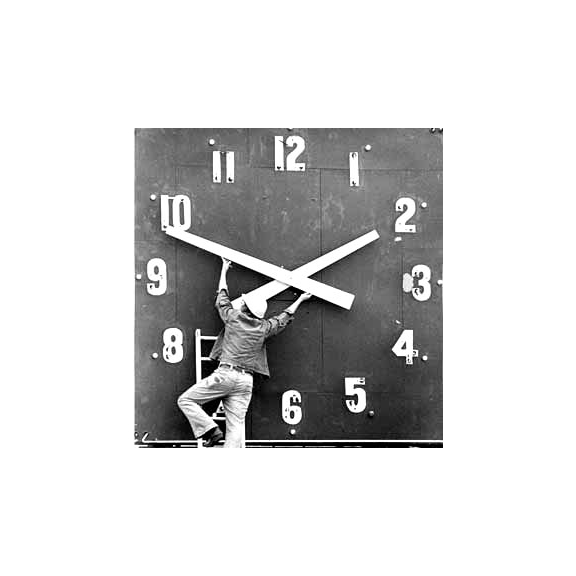
This weekend the clocks will go back at 2:00am on 25 October.
Why?
Blame William Willett, a prominent Edwardian builder and businessman, who put forward the idea of daylight savings time.
He argued that the clocks should go back in the summer to get people up and about earlier (he was frustrated that he was the only person enjoying the daylight during his early morning horse rides.)
In 1907 he published a pamphlet called The Waste of Daylight, outlining plans to encourage people out of bed earlier in summer and spent the rest of his life fighting to get the government to agree. He died in 1915 with the Government still refusing to back it. But the following year, Germany introduced the system and Britain followed in May 1916.
Politicians hoped that the extra hours of daylight would reduce the amount of coal used for lighting, in order to lessen the economic strains caused by the First World War.
Did you know?
When the system was first introduced, many clocks could not have their hands turned backwards, and had be put forward by 11 hours instead. The Home Office put out special posters telling people how to reset their clocks.
Do we still need to do it?
Many people think we should ditch Greenwich Mean Time entirely and stick with BST all year round, to align with working hours on the continent and increase safety around schools at collection time.
The government has actually tried abandoning GMT twice before.
In the Second World War (1939-45), Britain had adopted Double British Summer Time, with the clocks one hour ahead of Greenwich in winter and two hours ahead in summer.
Then they trialled year-round daylight savings in 1968, under a three-year experiment called British Standard Time.
When the experiment ended in 1971, the Home Office concluded there were both pros and cons to having the clocks forward and decided to return to the original British Summer Time.
When do the clocks go forward again?
The clocks go forward on 27 March 2016.
Tips for parents*
If you've got young children, the clocks going back is a thing to dread, not relish. Instead of an extra hour in bed, you'll be up at 5am, trying to resist the lure of CBeebies and wondering how long you can delay breakfast.
Super organised parents apparently try moving bedtime back by ten minutes every day for two weeks. it's not too late to start that - an extra ten minutes every day from now until Saturday night would give you a bed time of almost an hour later (although there's no guarantees that waking up time will also be later.)
Some recommend wearing your children out with fresh air and exercise on Saturday, then putting them to bed half an hour later, before attempting to get them to stay in bed half an hour longer on Sunday morning - and then doing the same on Sunday.
But obviously this runs the risk you'll have a worn out child who just really wants to go to bed on Sunday night. So maybe put yourself to bed an hour earlier on Saturday instead.
(*not actual tips, more an acknowledgement that children will get up when they're awake and there's not a lot you can do about it).
- Daily Echo
Hi
I work with the team at thebestofPoole and thebestofbournemouth as a social engagement co-ordinator and I love it!
The following Cookies are used on this Site. Users who allow all the Cookies will enjoy the best experience and all functionality on the Site will be available to you.
You can choose to disable any of the Cookies by un-ticking the box below but if you do so your experience with the Site is likely to be diminished.
In order to interact with this site.
To help us to measure how users interact with content and pages on the Site so we can make
things better.
To show content from Google Maps.
To show content from YouTube.
To show content from Vimeo.
To share content across multiple platforms.
To view and book events.
To show user avatars and twitter feeds.
To show content from TourMkr.
To interact with Facebook.
To show content from WalkInto.